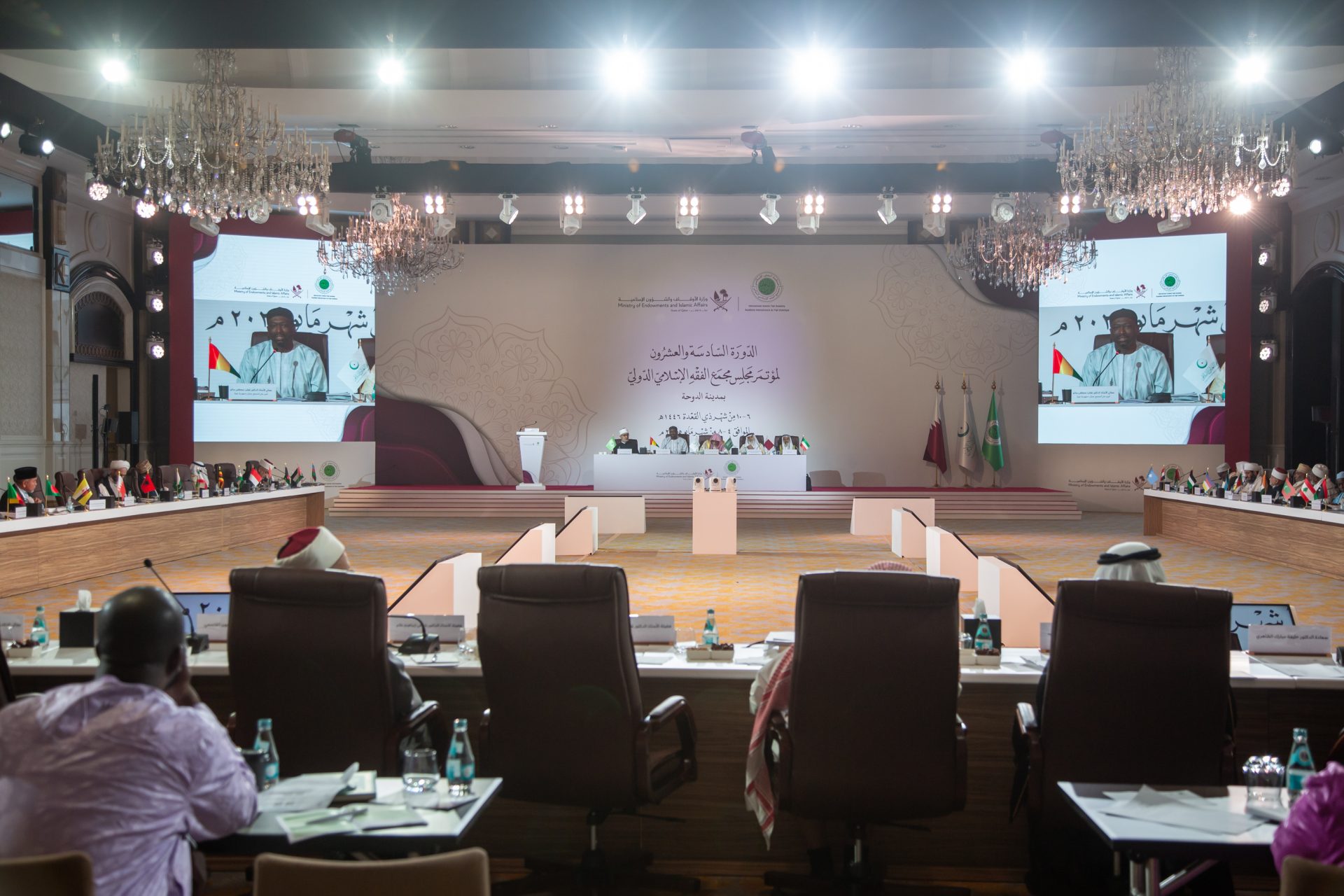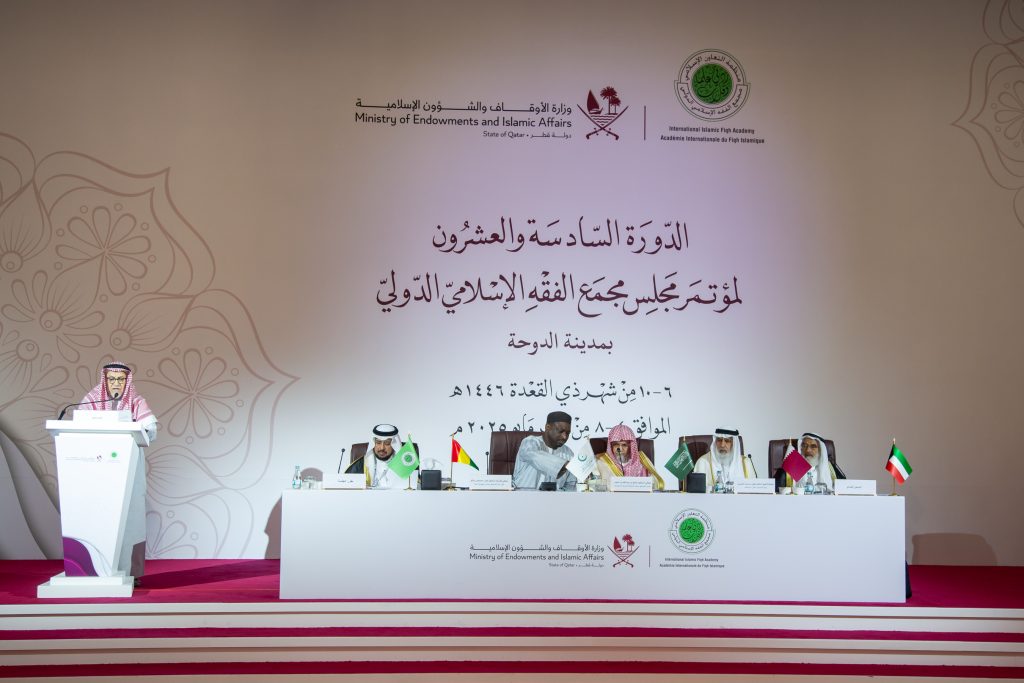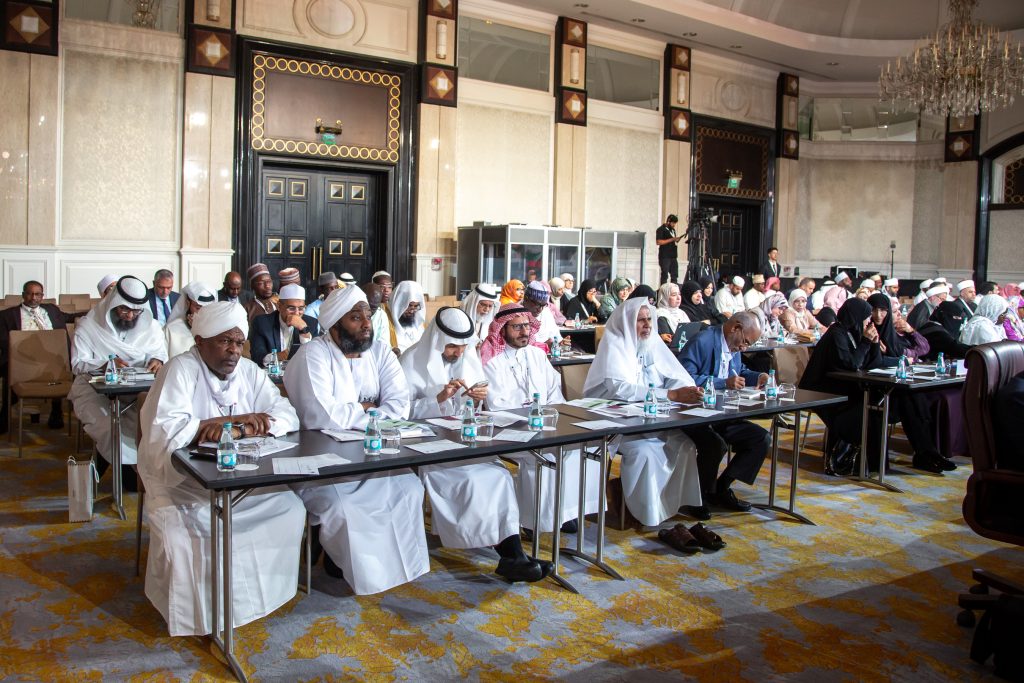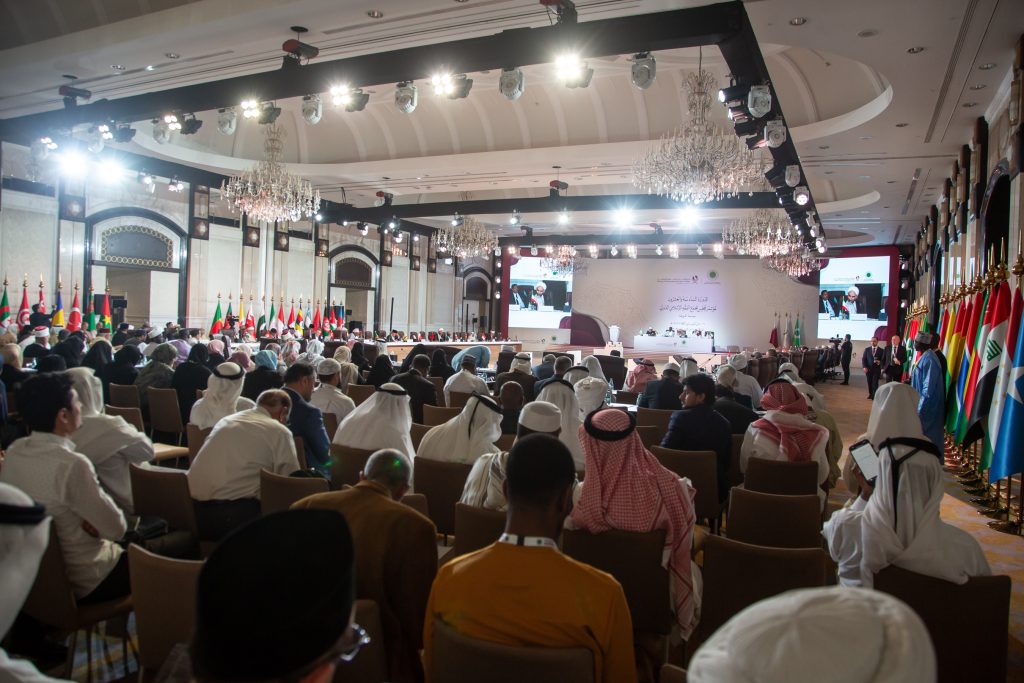
The 26th Session of the International Islamic Fiqh Academy, held in the Qatari capital, Doha, continued on Tuesday, 8 Dhul Quida 1446, corresponding to 6 May 2025, with in-depth scientific discussions on several contemporary issues of concern to Muslim societies and communities.
The fifth scientific Session was devoted to electronic games, where participants discussed the dimensions of this globally prevalent phenomenon, reviewing its pros and cons, especially the psychological, social, behavioral, and financial risks that threaten those addicted to it. Discussions addressed these issues in the light of Shariah rules and maxims, such as the principle of “promoting goodness and preventing harm” and the principle of “permitting benefit and prohibiting harm”. The sixth Session focused on the impact of mental disorders on legal capacity, with researchers explaining the subtle differences between the concepts of “mental illness” and “mental disorder”. According to recent studies, mental disorders are groups of clinically significant symptoms that affect thinking, mood, or behavior and adversely affect a person’s social and occupational functioning. The Session adopted the American Psychiatric Association’s definition in its analysis, which was based on the objectives of Shariah in protecting the mind and soul. In the seventh Session, the conference discussed Shari’a governance in Islamic financial institutions, highlighting the importance of effective supervisory structures and mechanisms to ensure that these institutions comply with Shari’a principles and provisions, achieve integration between financial performance and Shari’a compliance, and preserve the objectives of Shari’a in economic transactions.
In this context, participants emphasized the need to unify the jurisprudential reference for Islamic financial institutions as a legal and professional requirement that achieves discipline and provides confidence and consistency in fatwas and financial applications. They also warned of the danger of continued differences between institutions in the application of Shariah rulings, leading to market turmoil and conflicting fatwas. Participants called for adherence to the collective resolutions of accredited scholarly institutions, most notably the International Islamic Fiqh Academy and the Accounting and Auditing Organization for Islamic Financial Institutions (AAOIFI). They also highlighted the challenges faced by Shariah Boards in financial institutions, including attempts to influence their rulings and to impose administrative policies that violate Shariah rulings, which necessitates strengthening the independence of these boards and enabling them to perform their role without pressure or restrictions.
This Session also addressed other contemporary jurisprudential issues, including:
- The ruling on stunning birds and animals before slaughter and its effects on the permissiveness of slaughter.
- The ruling on feeding premature infants with milk from known or unknown mothers.
- The ruling on producing and marketing cultured meat and GMFs of animal origin, and products derived from insects.
The drafting committees are scheduled to meet on the fourth day to prepare the final drafts of the Council’s resolutions and recommendations for their presentation to the Council at its final Session, which is scheduled for Thursday, 10 Dhul Quida 1446, corresponding to 8 May 2025.
Read Also
Lastest











